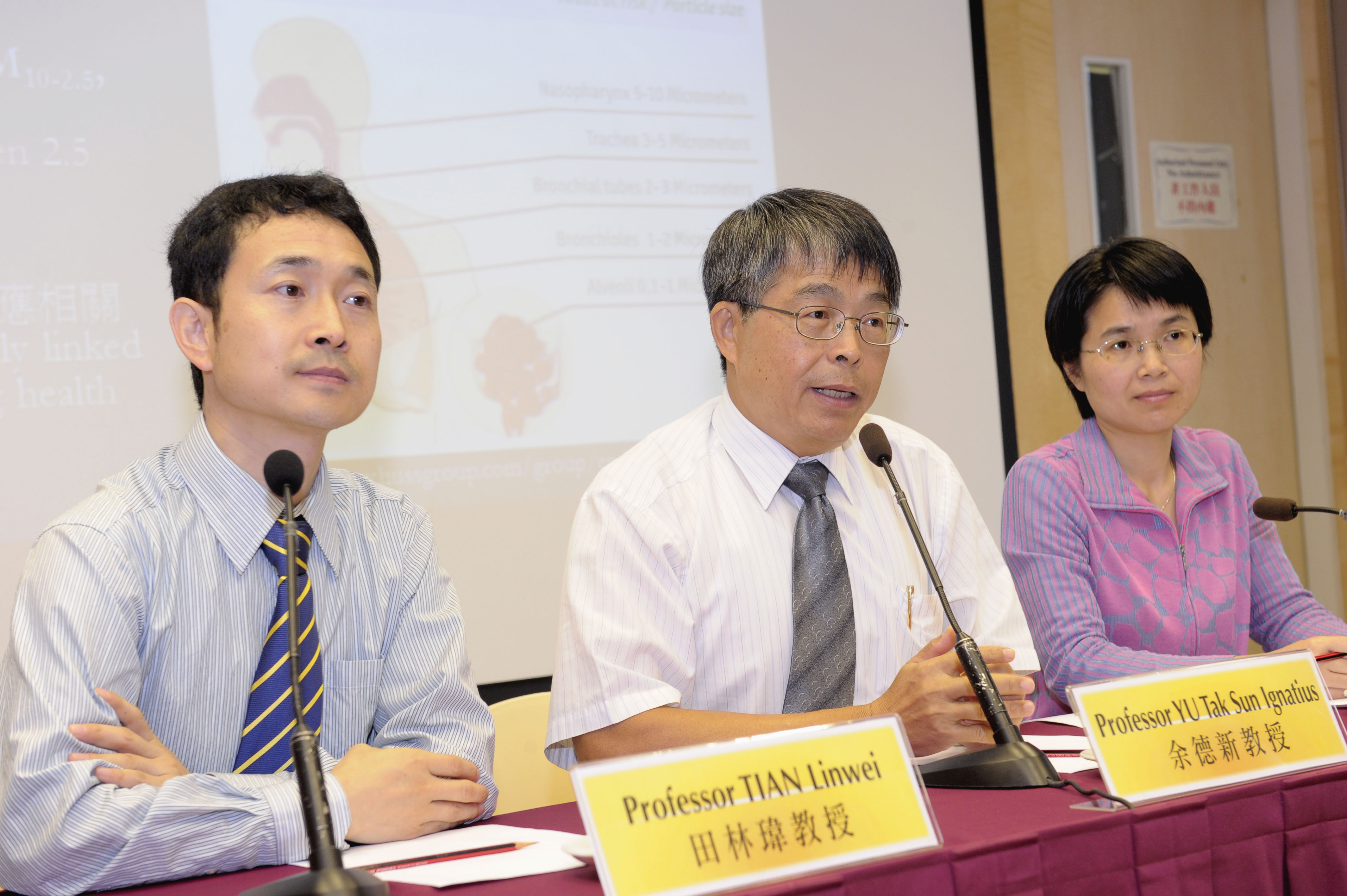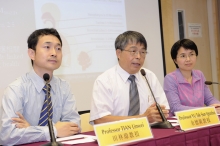CUHK
News Centre
CUHK Green Pioneer SeriesCUHK Recommends Hong Kong’s New Air Quality Objectives Should Not Ignore Coarse Particulate Pollutants
In Hong Kong, air quality has been deteriorating for over 20 years and presents a serious threat to the health of its citizens. It is commonly accepted that the associations between the respirable suspended particles and adverse respiratory health effects are mainly attributable to the fine particles (particles with an aerodynamic diameter of less than 2.5 μm, PM2.5) because of their higher number (count) concentration, larger surface area and deeper lung deposition. Recently, an epidemiological research led by Prof. Yu Tak Sun Ignatius, Head, and Ms. Hong Qiu (PhD candidate) of the Division of Occupational and Environmental Health, the Jockey Club School of Public Health and Primary Care at The Chinese University of Hong Kong (CUHK) examined emergency hospital admissions in Hong Kong between 2000 and 2005 and reported that the effects of coarse particles (particles with an aerodynamic diameter between 2.5 and 10 μm) should not be ignored.
CUHK’s research discovered that a 10 μg/m3 increase of coarse particles was associated with about 1% increase of emergency hospital admissions for total respiratory diseases and 1.6% increase for chronic obstructive pulmonary diseases (COPD). In other words, a 10 μg/m3 increase of coarse particles led to 830 additional emergency hospital admissions for respiratory diseases per year, of which 482 admissions were due to COPD during the study period.
This study is the largest single-city study to date on the effects of coarse particles on emergency hospital admissions for respiratory diseases, involving over half a million admissions over the 6-year period. The report was recently published in Environmental Health Perspectives, the top international journal in environmental health.
Hong Kong’s current Air Quality Objectives (AQOs) have been adopted since 1987 and the standard set for particulate matter pollution is only confined to respirable suspended particles PM10. To better protect public health, the Environmental Protection Department of the HKSAR Government launched a public consultation to review Hong Kong’s AQOs in mid-2007, making reference to the World Health Organization (WHO) 2005 air quality guidelines. In 2009, a recommendation was made to include fine particles PM2.5 in AQOs. Professor Yu’s research has established the adverse effects of coarse particles on respiratory health, independent of fine particles and gaseous pollutants. In view of this discovery, CUHK suggests the Environmental Protection Department to take into consideration the adverse effects of coarse particles when reviewing AQOs in future.
CUHK Green Pioneer Series
CUHK is privileged to have a green campus that is among the most beautiful inAsia. In 2008 and 2009, the University was recognized at the Hong Kong Awards for Environmental Excellence by reaping the silver award and gold award respectively under the category of Public Organizations and Utilities, setting a model of sustainability in the academic sector.
CUHK will build on its outstanding achievements in carbon reduction, water saving, paper saving, ecosystem conservation, and environmental education. It will launch more innovative projects and share its latest green works through the Green Pioneer Series, bringing its experiences off-campus and share them with the public to promote green living.
(From left) Prof. Tian Linwei, Assistant Professor; Prof. Yu Tak Sun Ignatius, Head; and Ms. Qiu Hong, PhD Candidate, Division of Occupational and Environmental Health, the Jockey Club School of Public Health and Primary Care at CUHK present their recent research on 'Effects of Coarse Particulate Matter on Emergency Hospital Admissions for Respiratory Diseases' and recommend that coarse particles should not be ignored when reviewing Air Quality Objectives in future.





